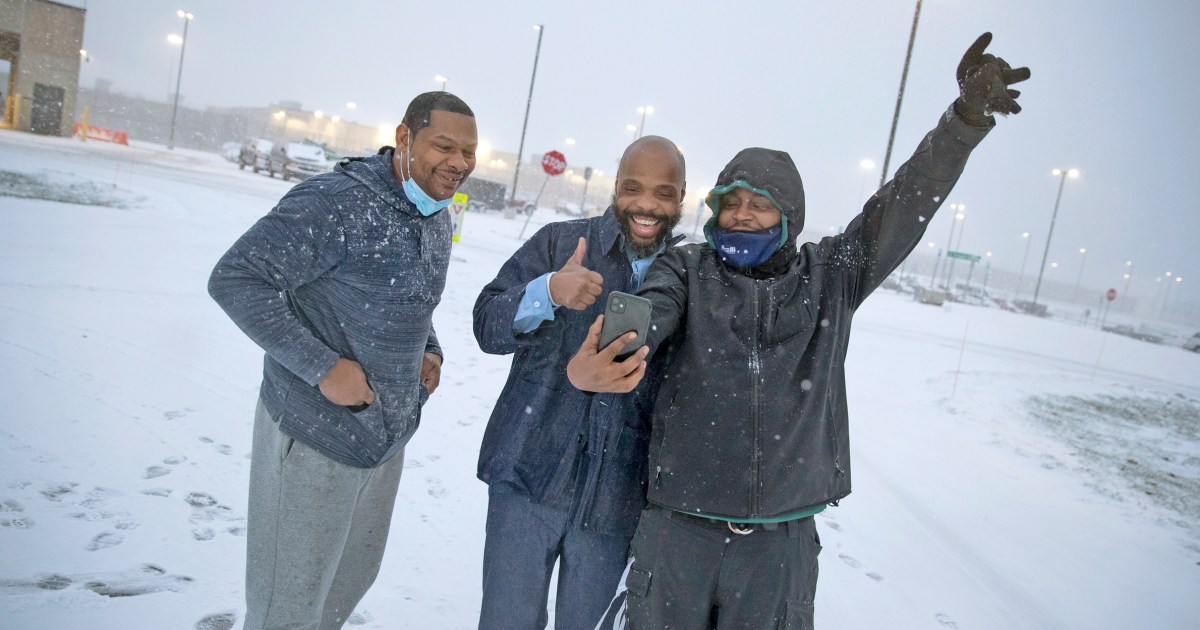
A woman casts doubt on account of twin sisters who say they were raped as teens
Karen and Sharon Sanders testified they were sexually assaulted by a Black man in 1977. A woman who claims to have new information questions that account.
While Black Americans make up around 13% of the population, the National Registry of Exonerations say they account for 53% of the 3,266 exonerations in the registry. “And that means more Black families are impacted,” said Samuel Gross, the registry’s founder and senior editor. “It’s heartbreaking. They’re no happy endings with exonerations. Almost all had their lives deeply damaged. And ... It’s devastating to families.”

As innocent Black men wait in prison to be exonerated, their families share the toll
Wrongful convictions have long-lasting consequences spanning generations — and Black families are affected the most.
Black people are seven times more likely to be wrongfully convicted of a serious offense, including murder, than white people, according to a report released Tuesday by the National Registry of Exonerations.
In addition, Black people fall victim to police misconduct at a greater rate and experience longer prison times before exoneration, the report found.
The study, which analyzes exonerations for murder, sexual assault and drug crimes since 1989, highlights drug crime exonerations as an example of the disproportionate rate at which Blacks are wrongfully accused and convicted of crimes—often the result of racial profiling.
“Innocent Black people are about 19 times more likely to be wrongfully convicted of drug crimes than innocent white people,” the report said. “Many are stopped and searched because of racial profiling, which then leads to wrongful drug convictions.
“Worse, many other Black people are deliberately framed by police officers who plant drugs on them or lie about drug crimes that never happened.”
The result: some 69 percent of drug crime exonerees are Black and 16 percent are white, even though Black and white people use illegal drugs at similar rates.
“Of the many costs that the War on Drugs inflicts on the Black community, the practice of deliberately charging innocent defendants with fabricated crimes may be the most shameful,” University of Michigan Law Prof. Samuel Gross, lead author of the study and Senior Editor of the Registry, said in a statement accompanying the release.
The study, Race and Wrongful Convictions 2022, found that although Black people comprise just 13.6 percent of the population, they accounted for 53 percent of 3,200 exonerations as of Aug. 8, 2022, when the study was completed for publication.
The systemic misconduct leading to the false convictions spanned several major cities, including Chicago, Cleveland, Los Angeles, New York and Philadelphia.
But the disparities were still significant in serious crimes, with police misconduct also playing a role.

Black People ‘Seven Times More Likely’ to Suffer Wrongful Convictions: Study - The Crime Report
Despite representing only 13.6 percent of the population, Black people account for 53 percent of the 3,200 exonerations through August 2022, according to a report released Tuesday by the National Registry of Exonerations.







